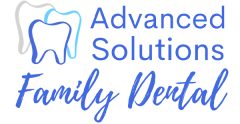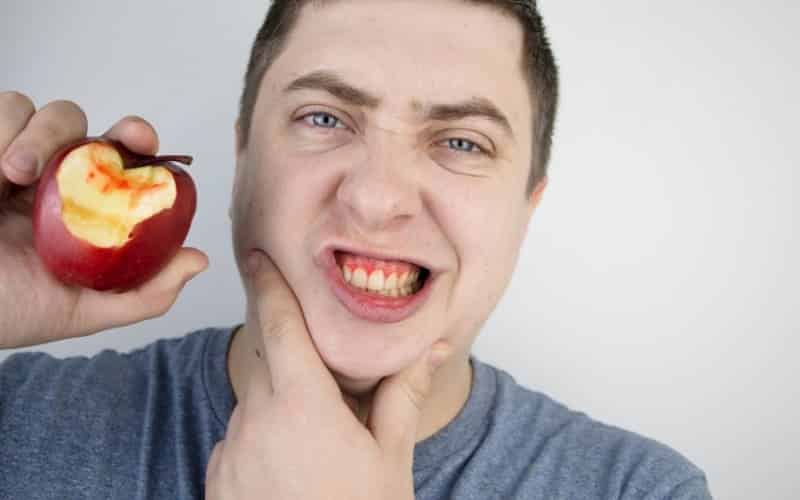Periodontitis is a serious gum disease affecting millions of individuals worldwide. In this post, we’ll look at the chances of teeth recovering from periodontitis and the critical actions to follow to preserve excellent dental health. Understanding the causes and symptoms of periodontitis, choosing suitable treatment choices, and practicing excellent dental hygiene are critical for maximizing healing and preventing the recurrence of this painful illness. Individuals may regain their oral health and enjoy a beautiful smile for years by treating periodontitis early and working with dental specialists.
Understanding Periodontitis:
Periodontitis is a severe gum infection affecting the soft tissue and bone-supporting teeth. The bacteria in dental plaque produce an inflammatory reaction in the gums. The symptoms are red, swollen, bleeding gums, chronic foul breath, receding gum lines, and loose teeth. If left untreated, periodontitis can cause irreparable damage to the teeth and surrounding tissues. Periodontitis must be treated as soon as possible to prevent tooth loss and maintain general dental health.
Treatment Options For Periodontitis:
1. Non-Surgical Interventions:
1. Scaling and root planing:
A thorough cleaning treatment eliminates plaque and tartar accumulation beneath the gum line.
2. Antibiotics:
These medications can be used to treat bacterial infections and decrease inflammation.
3. Antimicrobial mouth rinses:
It can aid in the killing of microorganisms and the maintenance of oral hygiene.
2. Surgical Interventions (For Advanced Cases):
1. Flap surgery:
This procedure involves lifting the gums to remove tartar and germs from deep places and repositioning the gum tissue.
2. Bone grafting:
It is a procedure that involves replacing damaged bone with synthetic or donated bone to encourage new bone development.
3. Guided tissue regeneration:
Guided tissue regeneration is a treatment that uses a barrier membrane to promote the creation of new bone and gum tissue.
Seeking Professional Dental Care:
See a dentist or periodontist for an accurate diagnosis and to determine the best treatment choice.
Regular dental checkups allow for condition monitoring and, if necessary, therapy changes.
Personal Oral Hygiene Practices:
1. Brushing your teeth with fluoride toothpaste twice a day.
2. Daily flossing helps eliminate plaque and debris between teeth and beneath the gum line.
3. Using an antibacterial mouthwash to aid in the reduction of microorganisms in the mouth. Remember that the particular treatment choices and approach will be determined by the severity of the periodontitis and the individual circumstances.
4. A dental expert should be called for a thorough evaluation and tailored treatment recommendations.
Can Teeth Recover From Periodontitis?
1. Periodontitis severity:
The severity of the illness determines the extent to which teeth can recover from periodontitis. Complete healing is possible when only the gums are afflicted in the early stages of gingivitis.
2. Damage to supporting structures:
Periodontitis damages the bone and tissues that support the teeth as the disease advances. While some regeneration is possible, any lost bone support cannot be completely replaced.
3. Treatment and oral hygiene practice:
Effective treatment, such as professional dental care and excellent oral hygiene habits, can aid in infection management and healing. This can result in less irritation and gum reattachment to the teeth.
4. Individual oral hygiene habits:
Maintaining dental health and preventing future damage requires consistent and effective oral hygiene practices at home, such as brushing twice daily, flossing daily, and using antimicrobial mouthwash.
5. Adherence to expert dental care:
Periodontitis management requires regular visits to the dentist or periodontist for cleanings, check-ups, and monitoring. They can make any required changes to treatment regimens and offer continuing maintenance.
6. Overall health and lifestyle factors:
Factors such as overall health, diet, and lifestyle choices (e.g., smoking) can impact healing. Maintaining a nutritious diet and oral hygiene can help teeth recover after periodontitis.
While total recovery may not be feasible after substantial injury, teeth can recover to some extent with adequate treatment and attentive dental care. To maximize the possibility of healing and prevent future deterioration, seek expert dental care, adhere to approved treatment regimens, and maintain excellent oral hygiene practices.
Maintaining Oral Health After Periodontitis:
1. Regular dental visits:
Schedule regular dental check-ups and cleanings to monitor your oral health and handle any possible problems.
2. Professional cleanings:
It can eliminate plaque and tartar accumulation, which can contribute to gum disease. Your dentist or hygienist might prescribe the frequency of cleanings based on your unique needs.
3. Good oral hygiene practices include:
Brush your teeth using fluoride toothpaste and a soft-bristled toothbrush at least twice daily. Floss at least once a day to remove plaque and debris from between your teeth and along your gum line.
4. Using an antimicrobial mouthwash:
It can help decrease germs in the mouth and prevent plaque accumulation. Consult your dentist for a recommendation that is appropriate for your needs.
Healthy lifestyle choices:
- Maintain a balanced diet.
- Minimize sugary snacks and drinks.
- Quit smoking.
- Use alcohol in moderation.
These lifestyles can give better overall dental health.
1. Stress management:
Excessive stress can harm dental health. Find healthy strategies to deal with stress, such as exercise, relaxation techniques, or obtaining professional help.
2. Oral health education:
Attend educational seminars, read credible sources, and visit your dentist to stay current on good oral care procedures and discoveries.
3. Keep an eye out for indications of recurrence:
Look for any signs of gum inflammation, bleeding, or other periodontal disease symptoms. Contact your dentist immediately for an assessment and treatment if you detect any changes.
By following these procedures and practicing proper dental hygiene, you can avoid the return of periodontitis and maintain long-term oral health. Regular professional care and healthy behaviors are essential for optimal periodontitis management.
Although periodontitis can cause considerable damage to teeth and gums, it can heal with prompt intervention and continuous expert dental treatment. Individuals may improve their chances of recovery and preserve excellent dental health by recognizing the causes and symptoms of periodontitis, obtaining suitable treatment choices, and practicing good oral hygiene. Consult a dental professional for individualized advice and treatment to ensure a healthy smile for many years.
You can also read our latest article: Why Do Dentists Charge So Much for Invisalign?

